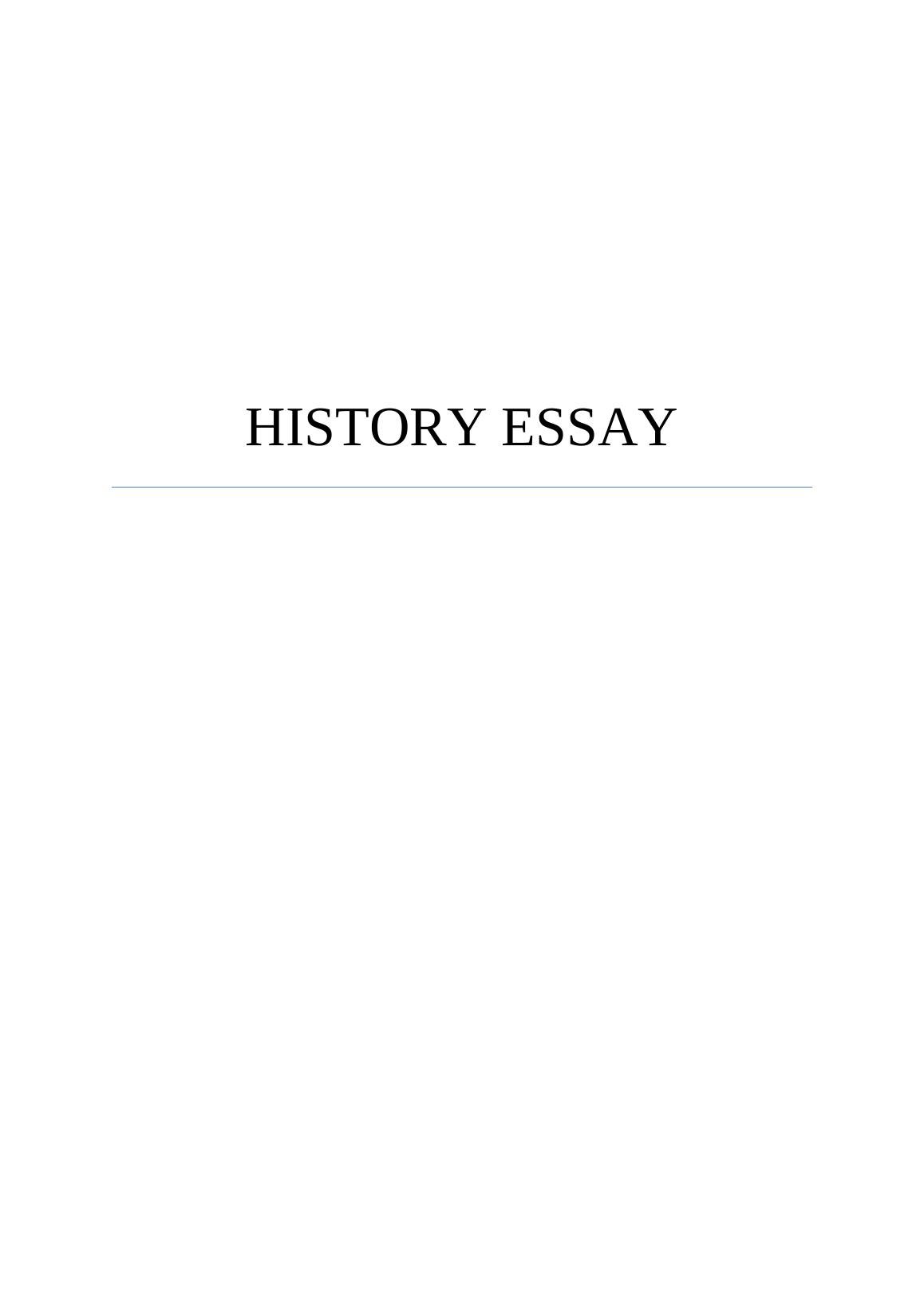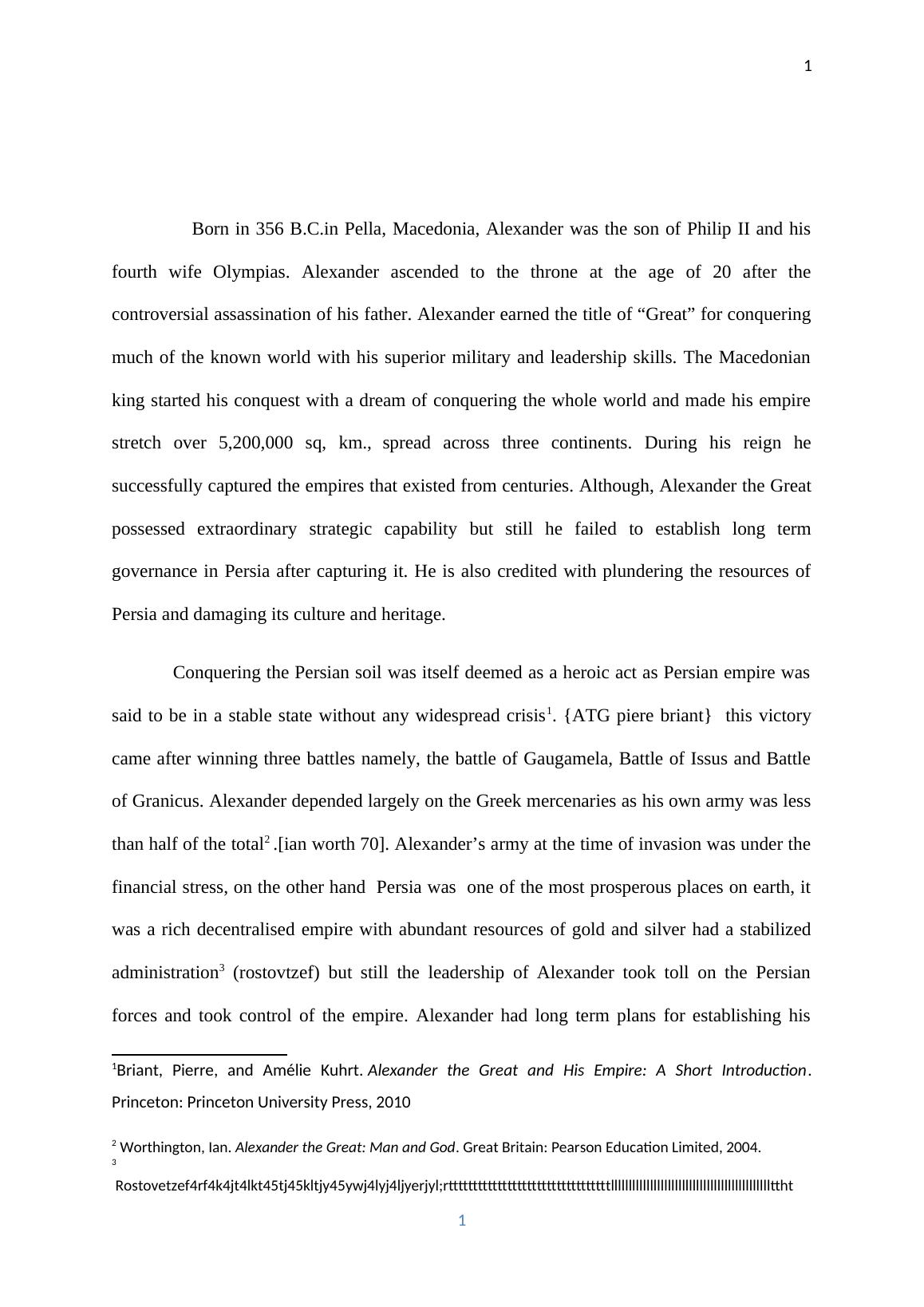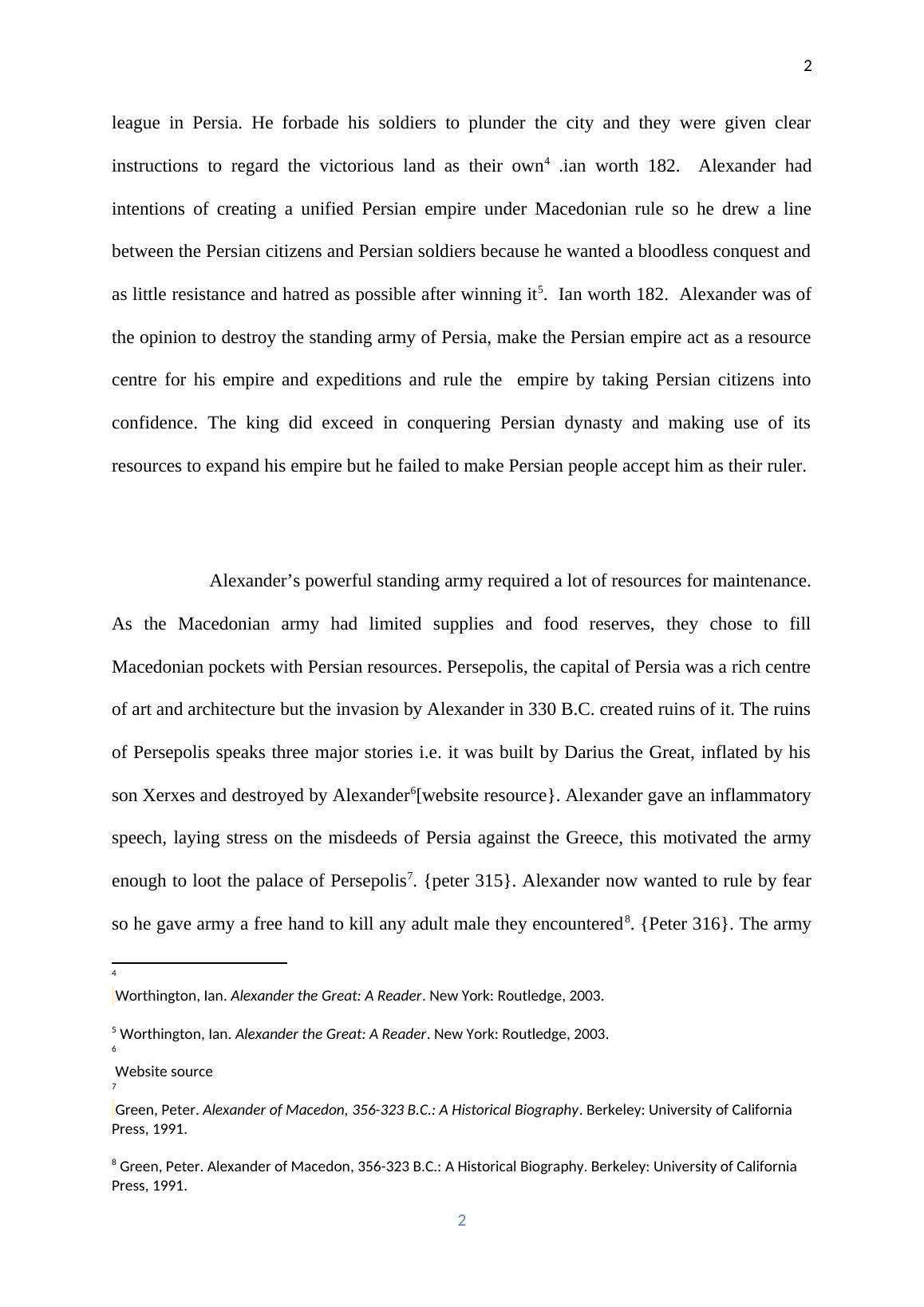HISTORY ESSAY. 1. Born in 356 B.C.in Pella, Macedonia,
Analyzing Alexander the Great's conquests and his impact on Persia's governance and culture.
9 Pages2295 Words401 Views
Added on 2023-04-08
HISTORY ESSAY. 1. Born in 356 B.C.in Pella, Macedonia,
Analyzing Alexander the Great's conquests and his impact on Persia's governance and culture.
Added on 2023-04-08
ShareRelated Documents
End of preview
Want to access all the pages? Upload your documents or become a member.
Key Achievements and Failures of Alexander the Great in Handling the Persian Empire
|7
|2345
|479
Strategies of Alexander in the Battles of Issus and Gaugamela
|6
|1084
|378
Alexander and the Hellenistic World
|11
|2982
|2
History of western civilization PDF
|5
|1021
|341
Achievements and Failures of Alexander in Handling the Persian Empire
|8
|2860
|500
(PDF) Alexander the Great and the “Clash” of Ancient Civilization
|4
|396
|82



